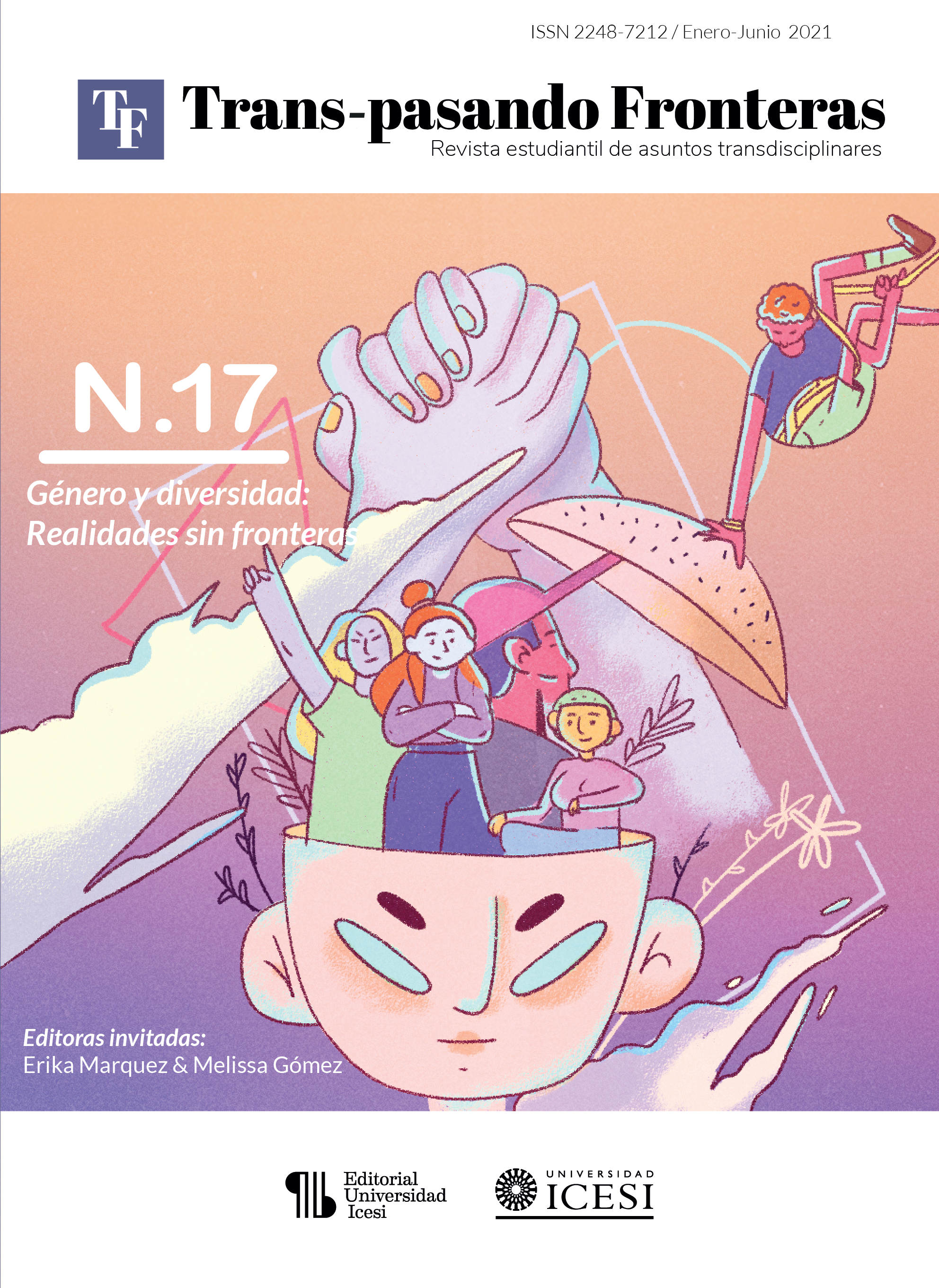La enseñanza universitaria en perspectiva de género
Sensibilidad de género e innovación docente
DOI:
https://doi.org/10.18046/retf.i17.4582Keywords:
Género, Docencia con sensibilidad de género, ciberfeminismo, Innovación docente, Gestión docenteAbstract
Incorporate gender sensitive pedagogy and practices into the University education is a necessity for an integral High education institution. Based on the author’s teaching and management experience, is needed to incorporate gender sensitive measures in University teaching. The incorporation of digital and distance learning in Higher education is also proposed from a gender perspective. Particularly with a mention to “cyberfeminist pedagogy”. In conclusion, a series of areas of action are proposed that will allow adopting a gender sensitive pedagogy in Higher Education.
Downloads
References
Briskin, L. Priegert Coulter, R. (1992). “Introduction to feminist pedagogy: Challenging the Normative”. Canadian Journal of Education/Revue Canadienne de l’education, 17, 3, p. 247-263.
Cox, P. (2010). “Epistemophilia. Rethinking feminist pedagogy”. Australian feminist studies, 25, 63, p. 79-92.
Diller, A. Houston, B. Morgan, K P, Ayim, M. (2018). The Gender Question in Education: Theory, Pedagogy, and Politics. New York: Routledge Taylor & Francis Grupo.
Frost, E. A. (2014) “Apparent feminist pedagogies: Interrogating technical rhetorics at Illinois State University”, Programmatic Perspectives, n6. (1), p. 110-131.
Frost, E. A. (2015). “Apparent Feminist pedagogies: Embodying Feminist pedagogical Practices at East Carolina University”. Programmatic perspectives, 7:2, p. 251-276.
Gender Equality Commission (GEC) (2015). Conference on “Combating gender stereotypes in and through education” Helsinki, 9-10 October 2014” Report, Strasbourg: Council of Europe.
Herman, C. Kikup, G. (2017). “Combinig feminist pedagogy and transactional distance to create gender-sensitive techonology-enhanced learning”. Gender and Education, n. 29 (6), p. 781-795.
Hooks, B. (2013). “La pédagogie engagée”. Tracés. Revue de sciences humaines, 25, 2, p. 179-190.
Jorquera García, P. (2016). Las Nuevas tecnologías en la enseñanza media: Presupuestos e implicaciones teóricas. Trabajo fin de Máster en formación del profesorado, Universidad de Murcia: Murcia.
Karlson, I. Simonsson M. (2011) “A question of Gender-Sensitive Pedagogy: discourses in pedagogical guidelines”, Contemporary Issues in Early Childhood, Vol. 12, n. 3, p. 274-283.
Karlson, I. Simonsson, M. (2008) “Preschool Work Teams’ View of ways of working with Gender Parents’ Involvement”, Early Childhood Education Journal, New York, 36, n. 2, p. 171-177.
Kenway, J. Modra, H. (1992) “Feminist pedagogy and Emancipatory possibilities”, en Gore, J. Luke, C. (dir.). Feminisms and Critical Pedagogy Routledge: New York/London, p. 138-166.
Lampron, E.M. (2016). “Pour une pédagogie féministe de l’enseignement des méthodologies (féministes)”. Recherches féministes, 29, 1. P. 169-178.
Manicom, A. (1992). “Feminist pedagogies: Transformations, Standpoints and Politics”. Canadian Journal of Education/ Revue Canadienne de l’éducation, 17, 3, p. 365-389.
Mengel, F. Sauermann, J. Zölitz, U. (2019) “Gender bias in Teaching Evaluations”. Journal of the European economic association, Vo. 17, 2, p. 535-566.
Mozziconacci, V. (2015). “Pédagogies feminists et conscientisation”. Inter pares. 2017, P. 99-103.
Mukhopadhyay, M., Steehouwer, G., y Wong, F., (2006) Politics of the posible: gender mainstreaming and organisational change: experiences from the field, Societal Development & Gender Equity. Amsterdam: Royal Tropical Institue.
Murphy, P. F. Gipps, C. V. (1996) Equity in the Classroom: Towards effective pedagogy for girls and boys. London: Falmer Press and UNESCO Publishing.
Nakamura, L. (2008). Digitizing race: Visual cultures of the Internet. Minneapolis: University of Minnesota Press.
Nave, C. (2005) “Le féminisme comme pédagogie”, Travail, genre et sociétés, 1, 13, p. 168-170.
Paasonen, S. (2011) “Revisiting Cyberfeminism” The European Journal of Communication Research, 36, p. 335-352.
Pascarella, E. T. (1985) “Students’ affective development within the college environment”. Journal of higher education, n. 56, p. 640-663.
Pérez Bustos, T. (2015). Feminización y pedagogías feministas. Bogotá: Pontificia Universidad Javeriana.
Sánchez Tortosa, J. (2012) El formalismo pedagógico: El problema del pecado original y la utopía pedagógica en la legislación educativa española a la luz de la dialéctica formal entre la influencia católica y la protestante. Tesis doctoral. Madrid: Universidad Complutense de Madrid.
Silva Reis, J. Natansohn, G. (). Del ciberfeminismo al hackefeminismo. Notas para pensar internet en tiempos de la algoritmia. En Rivoir A. L. Morales, M. J. (Coords.) Tecnologías digitales. Miradas críticas de la apropiación en América Latina. (p. 391-405) Buenos aires, ed. Clacso.
Solar, C. (1992). 2Dentelle de pédagogie féministe”. Canadian Journal of education. 17, 3. P. 264-285.
Downloads
Published
Issue
Section
License
Trans-pasando Fronteras provides immediate open access to its content on the principle that making research freely available to the public supports a greater global exchange of knowledge.
© Authors hold copyright and publishing rights without restrictions but in accordance with the CC license.
All the material in this publication can be reproduced as long as reference is made to title, author and institutional source.







